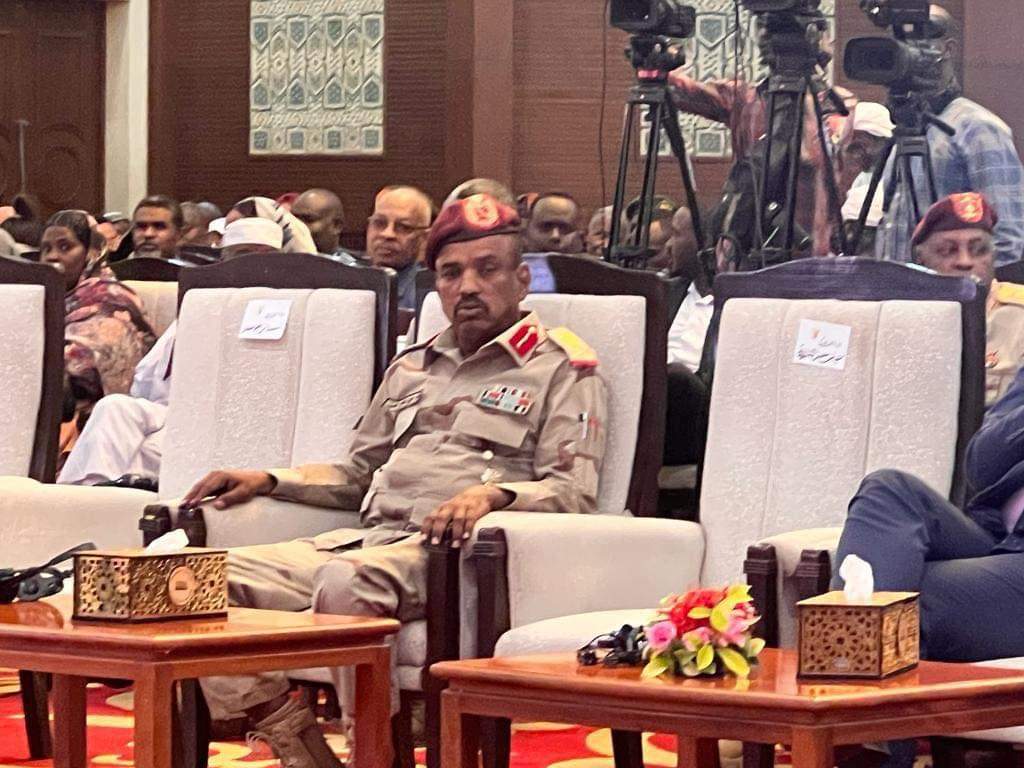Khartoum, March 30(darfur24) Sudanese army commanders were absent from the closing session of the security and military arrangements workshop, on Wednesday evening, in protest against the failure to include the rapid support forces’ integration into the armed forces.
The military and civilian parties involved in the political process ended the workshop without reciting the recommendations.
Army Commander Abdel Fattah Al-Burhan, Rapid Support Commander Mohamed Hamdan Dagalo, and senior commanders of the two organizations boycotted the closing session of the security reforms workshop.
New developments in the security reform workshop have re-established the atmosphere of raging differences between the two military systems, whose conflicts have reached advanced stages in recent weeks.
The Sudan Tribune newspaper quoted a senior military official as saying that the final recommendations of the workshop ignored the proposals of the armed forces with regard to the two-year merging period of RSF in a unified Sudanese army.
The military official added, “The tripartite mechanism and the parties of the civilian frameworks agreement are siding with the Rapid Support Forces.”
Earlier, Al-Burhan said that one of the reasons for their support for the framework agreement is that it contains a clear clause on integrating the Rapid Support Forces into the army.
However, a renowned RSF figure told Sudan Tribune that commanders of the army, the Rapid Support Forces and other parties leaders signed a draft agreement on the principles and foundations of security and military reform on March 15th.
He added, “All parties to the political process signed the special draft on the principles and foundations of security and military reform, which includes the merger process and set it for ten years, and the army commander approved and signed that clause.”
The official confirmed that the draft, after everyone signed it, including the tripartite mechanism, has become the approved basis for work on it in the workshop.
For his part, the spokesman for the political process, Khaled Omar Youssef, said, during his recitation of the closing statement of the workshop, that “the specialized committees of military and civilians will continue discussions on the technical formulations of the detailed recommendations in order to publish them for public opinion.”
He pointed out that the discussions are based on the workshop paper on principles and foundations for the security and military reform process, which was agreed upon by the military and civilians, and which was signed on March 15.
“What remains now is some technical work to complete the details and include them in the final political agreement,” he added.
The principles and foundations paper talks about setting gradual mechanisms for command and control for the phases of integrating the Rapid Support Forces into the army, beginning with the unification of the command and followed by the unification of the staff, the leadership of regions and divisions, respectively, provided that the period of integration does not exceed 10 years.
The forces involved in the political process decided to sign a final agreement next Saturday, followed by the signing of the draft transitional constitution, in preparation for the formation of a civilian government on April 11.
Engagement took place in the political process, based on understandings between the army, rapid support and political forces, most notably the components of freedom and change, which culminated in the signing of a framework agreement on December 5, 2022.
The agreement stipulated handing over power to civilians, after agreeing on issues of justice, resolving the crisis in eastern Sudan, dismantling the structure of the former regime, evaluating the peace agreement, and reforming the security and military sectors, all of which were discussed in workshops and conferences.
Khaled Omar Youssef said that the security and military reform workshop dealt with reform processes in all their dimensions with regard to laws, structures, military doctrine, the multiplicity of armies, the purification of regular forces from partisan political work and elements of the former regime, and the review of admission criteria for military colleges and institutes.
He stressed that the process of reforming the security and military sectors is an integral part of reforming the political, economic, partisan and institutional situation of the Sudanese state.
The tripartite mechanism, composed of the United Nations Mission in Sudan, the African Union and the IGAD Organization, facilitates the political process aimed at restoring the civil transition.

